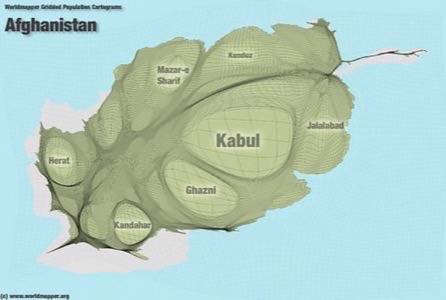There is confusing news coming from Afghanistan about cloud computing. A U.S. General has declared that the military is bringing in cloud computing to network soldiers in the sky and the ground.

According to Network World, “the basic hardware and software technology is being packed into mobile boxes that later this year will start to play a key role in networking for soldiers in the sky and on the ground.”
Of course, the military has a much more official description for this new technology infrastructure. Lt. Gen. Richard Zahner says it is a”government owned cloud set,” whatever that means.
This is the second time today we’ve noticed people talking about bringing cloud computing to a place. It shows how broad we have come to see cloud computing, almost to the point of absurdity. It’s either that or cloud computing is forming a blanket over us, becoming the universal norm, not the exception.
The actual deployment in Afghanistan is pretty interesting, even though it’s more of a complex network designed for connecting people in rugged terrains than a cloud computing infrastructure.
According to Network World, the military is assembling “mobile cloud computing nodes that will be assembled from specially designed hardware (measuring about 2 by 2 by 2 feet) into a terrestrial IP-based network that will include 3G wireless and security (including biometrics) and will cover rugged areas of Afghanistan.”
That actually sounds pretty cool. Nodes will be deployed that include airships that remain airborne for extended numbers of days. These nodes will support troops on the ground who will be using decision support tools to understand the identity of a person approaching a soldier.
A challenge for soldiers in Iraq and Afghanistan is knowing who is an insurgent and who is not. That’s where biometrics come in. It seems that the military is making a big effort to get fingerprints as a point of context and identification. If the military can get enough fingerprints, they can then know, to some extent, who is making bombs, who is a fighter and who is not.
It’s conceivable to see how such a network on the ground could be connected to airborne nodes that communicate with an extended cloud network. It shows if nothing else that we may be coming to a point where the cloud is never somewhere else, it’s all around us. It’s at home, work and in the rugged terrain of Afghanistan where data defines the relationship between civilians, insurgents and soldiers alike.





















